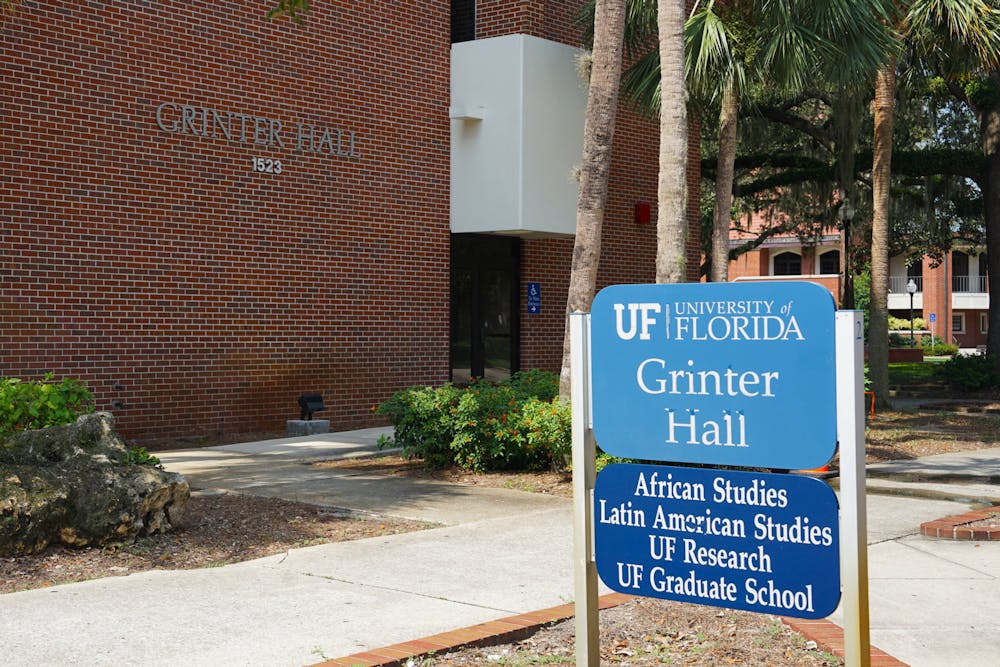Florida’s abundant history of instruction on Latin American and Indigenous culture may face censorship, potentially undermining the historical importance of the subjects.
Among the recently passed legislation, SB 266 or the Higher Education Bill, prohibits institutions from spending money on programs or activities that “promote or engage in political or social activism,” as stated by the State Board of Education.
UF reported spending $5 million in diversity, equity and inclusion funding, which is less than one percent of its budget, back in January.
With minimal spending already recorded, the recent legislation may not cast an overwhelming budget change but could potentially hinder any remaining DEI pursuits.
Despite the concern, some UF faculty believe the bill might overlook their departments.
Luis Álvarez-Castro, a UF professor and chair of the department of Spanish and Portuguese studies, believes self-censorship will affect a general understanding of Latin American teachings.
“Issues related to race and gender are essential to properly understanding our field of study, which is the languages, literatures, and cultures of the Spanish- and Portuguese-speaking world,” he wrote in an email.
Álvarez-Castro sees the legislation as part of a nationwide trend portraying a division between higher education and society. Economic and ideological factors also build upon it, he wrote.
“One term that has been repeatedly used is ‘indoctrination,’” Álvarez-Castro wrote. “Nothing could be further from our goal, which is to expand our students’ professional skills and foster their personal growth.”
Departments that already struggle with representation may contrarily conceal themselves from more restrictive change.
Kenneth Sassaman, a UF professor of archaeology and the American Indian and Indigenous Studies program director, said the recent legislation will have minimal impact on Indigenous studies.
“I don't see the DEI rollbacks affecting indigenous studies at UF,” Sassaman said. “We're really under the radar. I don’t want us to be under the radar, but we are.”
Sassaman took over the American Indian and Indigenous studies program back in Fall 2022, creating a functioning department by delegating different faculty members to different positions.
Higher UF administration may not be familiar with all the initiatives the American Indian and Indigenous studies program offers. While there is no official website for the department, they have endowments and funds to work with, Sassaman said.
These resources include the Alfred A. Cave Scholarship that was recently awarded to Levi Strodel, a 19-year-old UF history and political science sophomore.
“Being awarded this scholarship has allowed me to have more flexibility in my work schedule, creating more time for me to pursue my studies,” Strodel wrote. “It has also connected me with students and faculty who share my passion for indigenous activism.”
SB 266 would not directly impact these opportunities, Sassaman said.
Jesus Serrano-Vazquez, a 19-year-old UF history junior, is concerned about the bill’s impact on the student body’s dynamic, regardless of minimal change, he said.
There are many DEI tools benefiting students daily, like safe environments. Serrano-Vazquez enjoys going to the Institute of Hispanic-Latino Cultures – also known as La Casita — to study, he said.
Serrano-Vasquez dedicated himself to finding a community that he connects with, he said.
He’s the vice president of communications for Lambda Theta Phi Latin Fraternity and the Hispanic Student Association. He’s also the public relations director of the Mexican American Student Association and marketing director for Hispanic Latinx Heritage Month.
Serrano-Vasquez’s organizations, as well as others, are eager to speak out against the legislation yet worried about possible repercussions from doing so, he said.
“I know other organizations are afraid to speak out against the bill with how UF is standing and with the new president,” Serrano-Vasquez said.
Serrano-Vasquez’s fraternity is funded individually, yet he’s waiting for the fraternity to release a statewide notice speaking around the bill.
Santa Fe College Student Affairs associate vice president Dan Rodkin believes the legislation will not harm the college’s goals.
“We do not have a specific curriculum that is identified as DEI,” Rodkin said. “There is no impact on the classes we are offering.”
Rodkin acknowledges the legislation will have lasting effects on higher education universities and colleges, he said.
“That core mission and the work that we do at Santa Fe College does not change based on recent legislative decisions, and we're committed to the success of our students and improving our communities,” Rodkin said.
Contact Nicole at nbeltran@alligator.org. Follow her on Twitter @nicolebeltg.
Nicole Beltran is the Spring 2025 Engagement Managing Editor and a third-year journalism and economics major. She’s worked as the Fall 2025 Senior News Director and caimán editor. In her spare time, Nicole enjoys journaling, sculpting and going for walks.






